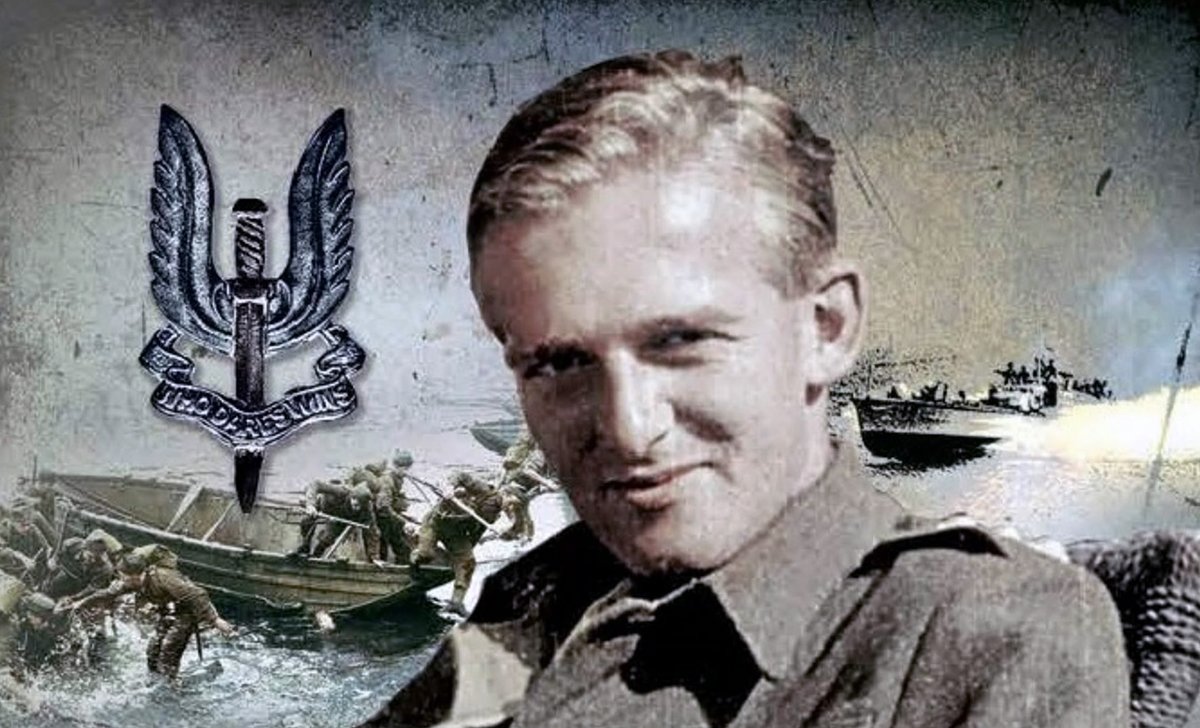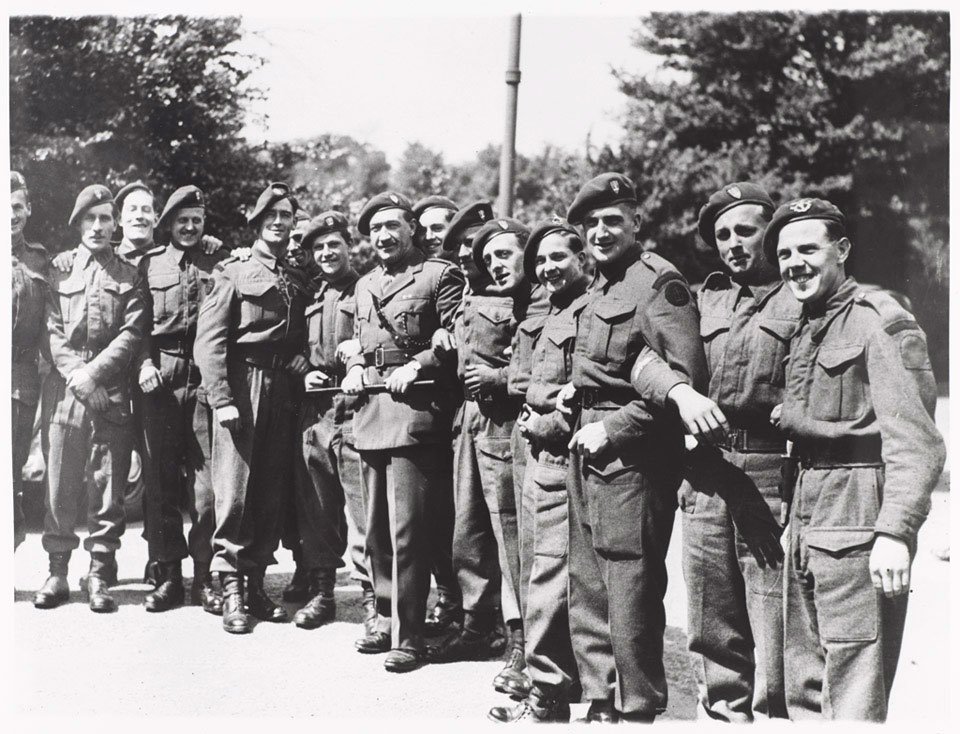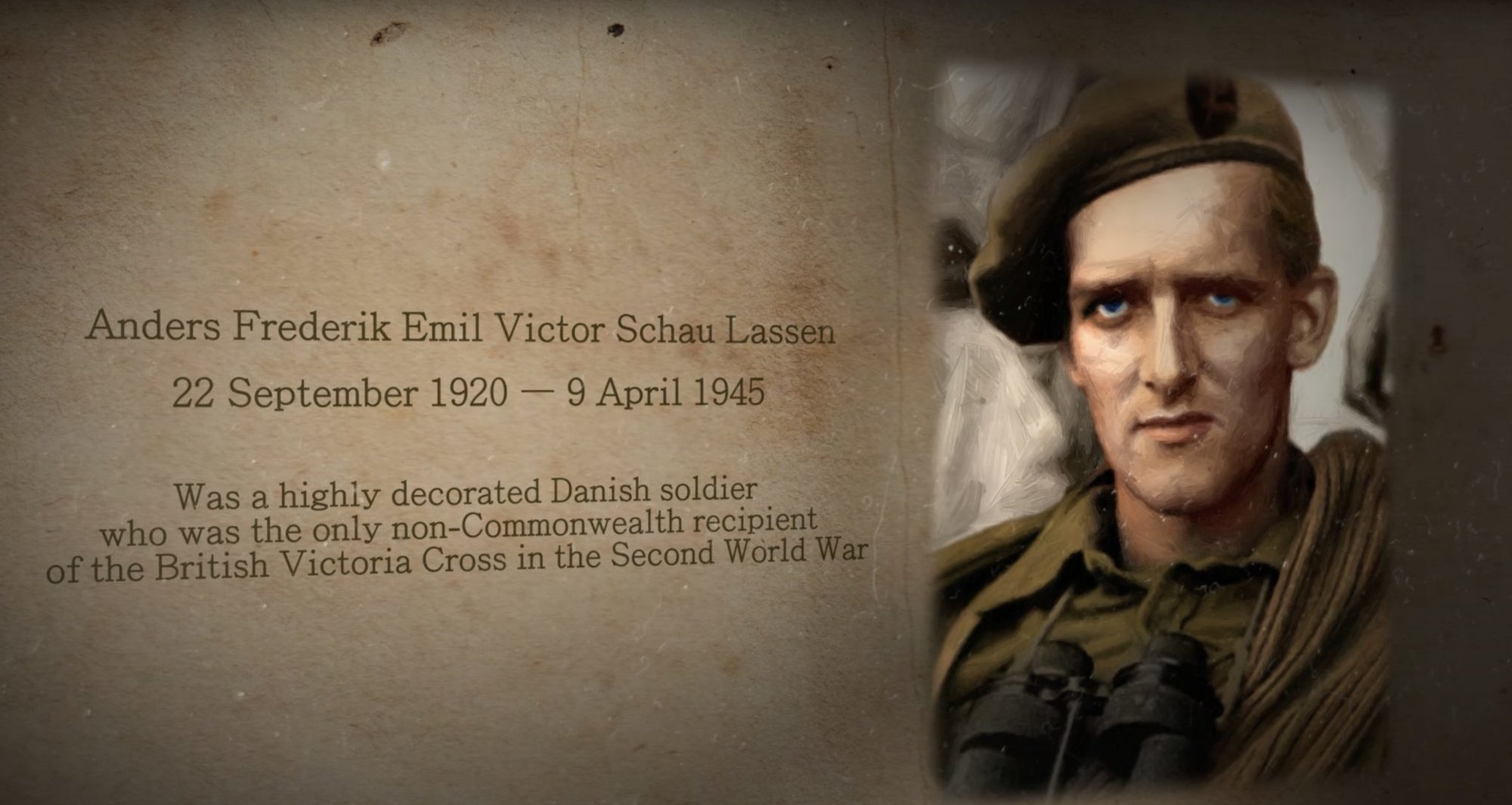How ‘The Terrible Viking’ Became a British War Hero and Victoria Cross Recipient

Anders Lassen, a drunken, insubordinate Dane, brawled his way to the Victoria Cross with many heroic deeds in Greece. Photo courtesy of Thomas Harder’s book Special Forces Hero: Anders Lassen VC MC*.
“Landed. Killed Germans. Fucked off.”
This unadorned after-action review by British commando Anders “Andy” Lassen tellingly illustrated his no-nonsense attitude toward conducting covert warfare against the Nazis in World War II.
Lassen, affectionately referred to as “The Terrible Viking” by his comrades, was among the most seasoned members of the British Special Boat Section, or SBS, one of two squadrons reorganized during World War II for commando operations. His nickname, according to commanding officer George Jellicoe, arose from his having “all the qualities of the buccaneering Viking — extraordinary courage, physical endurance, devil-may-care and keenness.”
At 19, the tall, athletic, blond and blue-eyed teenager left his home in Denmark and took to the sea to explore the world. The imposing Dane had a knack for engaging in drunken brawls with other sailors.

By July 1940, when commanding officer Capt. Roger Courtney formed the SBS, Lassen had already arrived in England with the Danish Merchant Navy. He had no option to return home, and his hatred for the Nazis was soaring. Earlier that April, the Germans had invaded his native Denmark. Shortly after his arrival, Lassen had his first encounter with an officer from the British Special Operations Executive, or SOE, a clandestine military and intelligence collection unit that specialized in sabotage.
When the officer discovered the Danish seaman was a brawler and could handle himself in harsh situations, he immediately recruited Lassen for a new, crack commando unit. He was exactly the kind of operator the Small Scale Raiding Force, otherwise known as No. 62 Commando, wanted. Not long after, Lassen participated in secret, small-scale raids against railways, port facilities, and airfields across Europe, North Africa, Crete, the Aegean islands, mainland Greece, Yugoslavia, and Italy.
The Dane’s instincts in hand-to-hand combat served him well in waging this covert war against the Nazis.
“He had an ability to transform himself into a killing machine, to perform the task with a panache that earned him a reputation of a killer of Germans par excellence,” said fellow SBS operator Dick Holmes.
During the course of these clandestine raids, Lassen earned three Military Cross awards — the US military equivalent of the Silver Star. One such award came after Operation Postmaster, a mission to capture three Italian and German warships from the neutral Spanish island of Fernando Po (now called Bioko) in the Gulf of Guinea.
However, Lassen’s most notable actions occurred during the night and early morning hours from April 8 to 9, 1945.
Lassen, by then a major, received orders to command a harassment raid during Operation Roast, on the north shore of Lake Comacchio in Italy. The goal was to make it appear as if a much larger force was conducting an amphibious landing. Lassen and the 17 commandos under his watch infiltrated the area; they posed as fishermen to gain access to a road leading into a nearby town.
A suspicious sentry challenged their cover story. A fistfight ensued.

After a German soldier witnessed the melee, a firefight erupted. Lassen responded immediately with hand grenades and annihilated the first position, killing four Germans and destroying two machine guns. Despite attacks from four separate and fortified positions, he raced forward and engaged a second machine-gun nest while his fellow commandos provided covering fire.
Lassen killed two more Germans, both of whom were manning machine-gun nests, and then captured two other enemy soldiers alive. Lassen rallied and reorganized his wounded force and assaulted a third enemy position. He advanced alone and hurled hand grenades at every muzzle flash. While he shouted for the remainder of the surviving Germans to come out with their hands up, he was strafed by a burst of fire. Before falling, Lassen hurled a final grenade.
The explosion wounded more Germans and allowed for the British force to capture the final position.
Although mortally wounded, Lassen refused to be medically evacuated — he didn’t want to endanger the lives of his men. After having single-handedly destroyed six enemy machine-gun positions, killed eight German combatants, and taken two prisoners of war, Lassen succumbed to his injuries. He was 24.
For his actions, Lassen was posthumously awarded the Victoria Cross, equivalent to America’s Medal of Honor. The honor made him the only non-Commonwealth recipient of the award during World War II.
Read Next: ‘Mad Jack Churchill’: The Officer Who Carried a Sword, Bagpipes, and a Longbow Into Battle

Matt Fratus is a history staff writer for Coffee or Die. He prides himself on uncovering the most fascinating tales of history by sharing them through any means of engaging storytelling. He writes for his micro-blog @LateNightHistory on Instagram, where he shares the story behind the image. He is also the host of the Late Night History podcast. When not writing about history, Matt enjoys volunteering for One More Wave and rooting for Boston sports teams.
BRCC and Bad Moon Print Press team up for an exclusive, limited-edition T-shirt design!
BRCC partners with Team Room Design for an exclusive T-shirt release!
Thirty Seconds Out has partnered with BRCC for an exclusive shirt design invoking the God of Winter.
Lucas O'Hara of Grizzly Forge has teamed up with BRCC for a badass, exclusive Shirt Club T-shirt design featuring his most popular knife and tiomahawk.
Coffee or Die sits down with one of the graphic designers behind Black Rifle Coffee's signature look and vibe.
Biden will award the Medal of Honor to a Vietnam War Army helicopter pilot who risked his life to save a reconnaissance team from almost certain death.
Ever wonder how much Jack Mandaville would f*ck sh*t up if he went back in time? The American Revolution didn't even see him coming.
A nearly 200-year-old West Point time capsule that at first appeared to yield little more than dust contains hidden treasure, the US Military Academy said.












